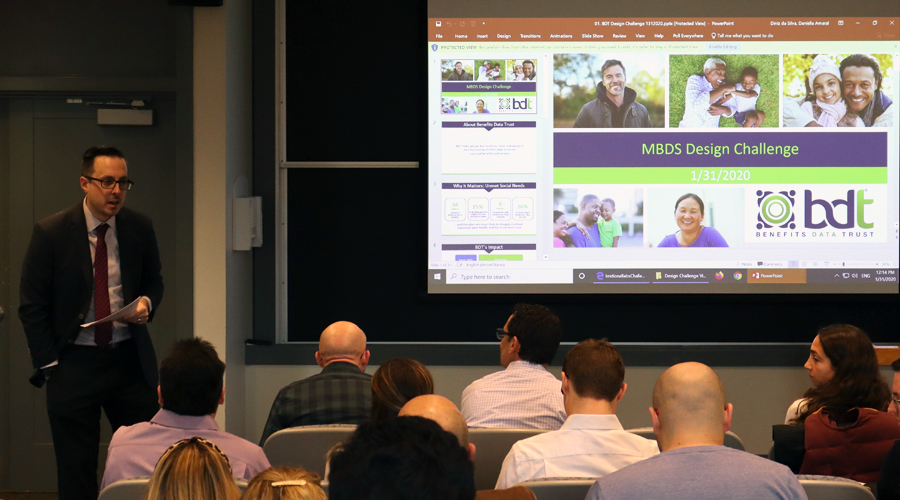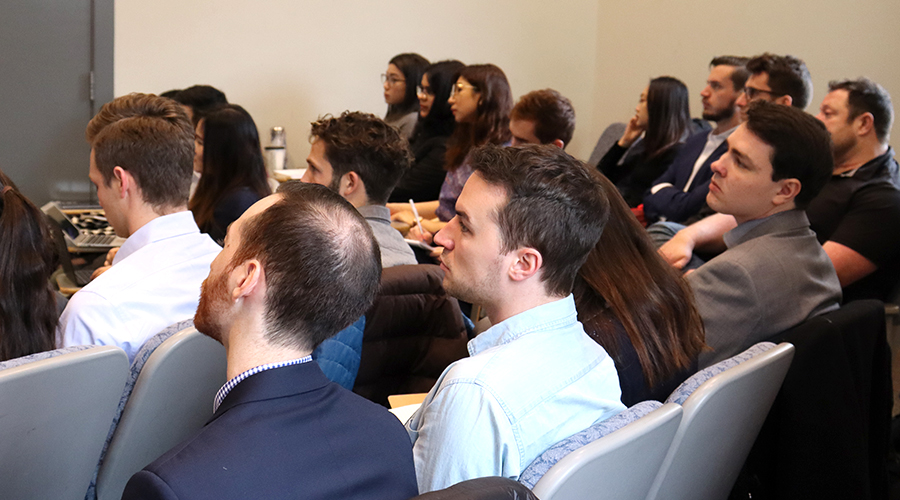
This spring, the Master of Behavioral and Decision Sciences (MBDS) program organized its second Design Challenge, aimed at connecting students and MBDS Industry Affiliates to integrate cutting edge knowledge in the fields of behavioral economics, decision sciences, network analysis, and public policy into real-life problems. Fifty-four students teamed up to tackle twelve challenges in health, wellness, sustainability, technology integration in marketing, and finance over six weeks. The winning teams presented their proposed solutions to clients’ senior management and leadership. Other teams offered evidence-based suggestions that inform changes in messaging and policy design.
In a Design Challenge, MBDS students work to translate academic research, theoretical foundations, and applied frameworks into actionable insights towards a client-focused problem. “Given the applied, professional nature of the MBDS program, it’s imperative for students to apply our unique curriculum by strategizing and connecting the dots for real-world solutions,” says Christopher Nave, Managing Director for MBDS. “Feedback from clients was overwhelmingly positive! Clients greatly benefited from the interdisciplinary teams of students offering solutions that can be implemented the next day, or ones that may take time to implement but may drive robust behavior change.”
Here is a sample of MBDS Design Challenge questions that students addressed. Stay tuned for updates on how our student-teams addressed these questions.
- How can behavioral science change consumer behavior to adopt reusable packaging instead of single-use plastics?
- How can behavioral science instill trust and encourage clients to use financial robo-advisors?
- How can we use behavioral science to activate communities of care for marginalized populations living with cancer?
- Which messaging strategies should we use to increase participation among eligible members for health and food benefits programs?
- How can behavioral science improve learner engagement through professional development?
- Why are 40% of Philadelphians choosing to drink bottled water versus tap water in their homes? How can this behavior be changed?

The MBDS program hosts Design Challenges every spring to drive collaboration between student groups and Industry Affiliates who, together, integrate cutting edge knowledge into real-life problems. Design Challenges highlight students’ training and diverse skill sets in behavioral economics, decision sciences, network analysis, and public policy by connecting behavioral insights to industry questions in an immersive and actionable format. Read more about becoming an Industry Affiliate, participating in Design Challenges, and the other opportunities available to industry partners.



